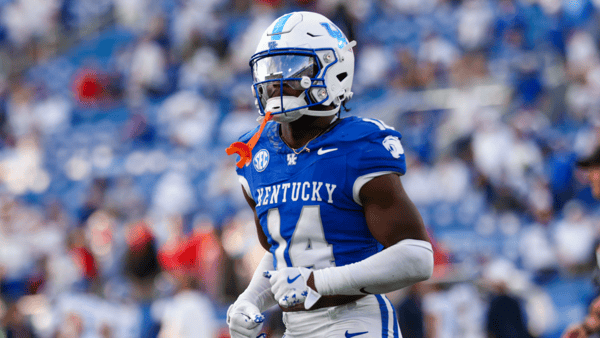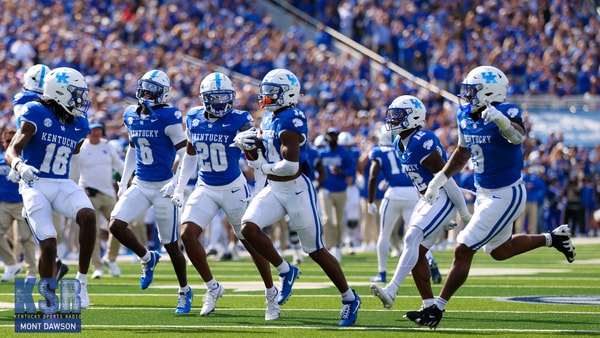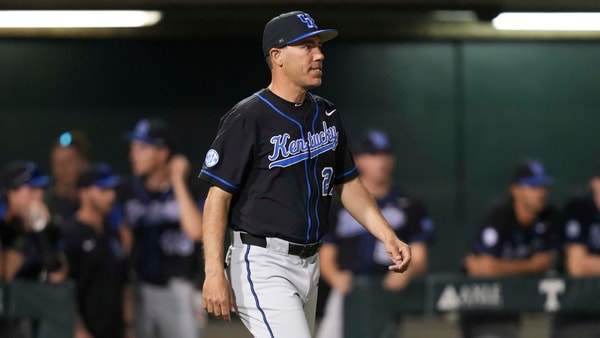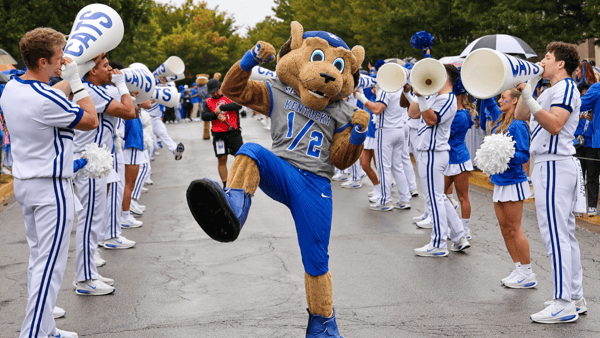Paraphrasing Arsenio Hall in Coming to America, if loving Lorde is wrong, I don't want to be right.
http://youtu.be/FawOWvApJh4
I mostly try to avoid stating my opinions and preferences as though they were objective facts, but this time I’m putting a stake in the ground.
Lorde’s “Royals” is the most subversive, and therefore most important, pop song of the year. The song doesn’t exactly rock, and Lorde bears no resemblance to a punk, but as a purposeful statement of populist ideals and commitments, “Royals” is pure “punk rock.” It also has purity and thoughtfulness that I would have sworn could not even exist, much less get a ton of airplay, in today’s commercial music universe. “Royals” doesn’t just make me smile and sing along – it feels like a small but hopeful step forward for pop music.

So what could possibly make a 3-minute pop song that big of a deal? Well, for starters, the song is everywhere right now, so a whole lot of people are hearing it. It’s currently #1 on the Billboard Hot 100 and #1 on iTunes, and Lorde is doing live performances all over TV (Jimmy Fallon, Ellen DeGeneres, Good Morning America). Clearly, “Royals” is now a hit in America after being huge globally throughout 2013, so its message and themes have wide reach.
That message is a substantial one with the potential to move listeners, especially young ones, to see their relationship with media and consumer culture a little differently. Basically, I hear “Royals” as an insightful and much-needed rejection of the crass materialism and hollow self-absorption that pervade pretty much every other song on pop radio. With rhythmic skill and plenty of humor, “Royals” runs down a list of the trappings of fame and wealth (top-shelf booze, European cars, gaudy jewelry, and a variety of unconscionable behaviors). The onslaught of increasingly fantastic images (“tigers on a gold leash”) serves to reduce this fantasy lifestyle to an absurd cartoon rather than a real life to which any average person could or should legitimately aspire.
Importantly, Lorde puts herself and her social circle at the center of the song’s point of view. A few keen details (“We count our dollars on the train,” “I’m not proud of my address,” and so on) effectively illustrate the plain world that Lorde and her friends occupy. Key passages then forcefully deliver a revolutionary, borderline dangerous message in our consumption-driven economy and culture –
it’s absolutely OK, and in fact a better way to live, to be perfectly fine and happy with what you have, who you are, and where you come from. Lorde’s message subverts rather than perpetuates modern pop culture’s tendency to equate opulence and garish consumption with success and happiness. “Royals” is a battle cry for humility, for practicality, for appreciating the moment, and for finding utmost value in your relationships rather than your possessions.

All the weighty meaning is successfully delivered because the song never feels like a sermon or a sociology lesson. It’s a celebration, and an inclusive one at that. Whereas most pop songs and videos are geared toward touting performers’ wealth and privilege as signs that they are better than anyone else (I have what you don't; I can do what you can't), Lorde invites everyone to her party. She is clearly part of the “we” in the song, and she means for us to be as well. For once, the only ones left out are the few “Royals” who actually do live in the luxury that Lorde rejects and ridicules.
My wife and I are about to have our first child, and I lose sleep over the idea of my kid being bombarded by "consumption is king" messages generated by cynical and irresponsible people in advertising, politics, and popular entertainment. We will do our best to raise our kid(s) with substantive values and sharp critical thinking skills – to question authority, borrowing the language of punk. Still, it would be nice to have some help once in a while from our pop culture beyond unappealing niche products geared toward certain religious viewpoints. Lorde’s “Royals” gives me hope that maybe the tide could turn against the selfishness and indifference seen in something like Miley Cyrus’ “We Can’t Stop,” in favor of something more positive and reinforcing, by the time my kid is old enough to reject “dad’s music” and start turning to pop radio. Here's hoping that Lorde inspires a few more pop prodigies with exceptional songwriting talent and constructive worldviews to start doing their thing.
 So what could possibly make a 3-minute pop song that big of a deal? Well, for starters, the song is everywhere right now, so a whole lot of people are hearing it. It’s currently #1 on the Billboard Hot 100 and #1 on iTunes, and Lorde is doing live performances all over TV (Jimmy Fallon, Ellen DeGeneres, Good Morning America). Clearly, “Royals” is now a hit in America after being huge globally throughout 2013, so its message and themes have wide reach.
That message is a substantial one with the potential to move listeners, especially young ones, to see their relationship with media and consumer culture a little differently. Basically, I hear “Royals” as an insightful and much-needed rejection of the crass materialism and hollow self-absorption that pervade pretty much every other song on pop radio. With rhythmic skill and plenty of humor, “Royals” runs down a list of the trappings of fame and wealth (top-shelf booze, European cars, gaudy jewelry, and a variety of unconscionable behaviors). The onslaught of increasingly fantastic images (“tigers on a gold leash”) serves to reduce this fantasy lifestyle to an absurd cartoon rather than a real life to which any average person could or should legitimately aspire.
Importantly, Lorde puts herself and her social circle at the center of the song’s point of view. A few keen details (“We count our dollars on the train,” “I’m not proud of my address,” and so on) effectively illustrate the plain world that Lorde and her friends occupy. Key passages then forcefully deliver a revolutionary, borderline dangerous message in our consumption-driven economy and culture – it’s absolutely OK, and in fact a better way to live, to be perfectly fine and happy with what you have, who you are, and where you come from. Lorde’s message subverts rather than perpetuates modern pop culture’s tendency to equate opulence and garish consumption with success and happiness. “Royals” is a battle cry for humility, for practicality, for appreciating the moment, and for finding utmost value in your relationships rather than your possessions.
So what could possibly make a 3-minute pop song that big of a deal? Well, for starters, the song is everywhere right now, so a whole lot of people are hearing it. It’s currently #1 on the Billboard Hot 100 and #1 on iTunes, and Lorde is doing live performances all over TV (Jimmy Fallon, Ellen DeGeneres, Good Morning America). Clearly, “Royals” is now a hit in America after being huge globally throughout 2013, so its message and themes have wide reach.
That message is a substantial one with the potential to move listeners, especially young ones, to see their relationship with media and consumer culture a little differently. Basically, I hear “Royals” as an insightful and much-needed rejection of the crass materialism and hollow self-absorption that pervade pretty much every other song on pop radio. With rhythmic skill and plenty of humor, “Royals” runs down a list of the trappings of fame and wealth (top-shelf booze, European cars, gaudy jewelry, and a variety of unconscionable behaviors). The onslaught of increasingly fantastic images (“tigers on a gold leash”) serves to reduce this fantasy lifestyle to an absurd cartoon rather than a real life to which any average person could or should legitimately aspire.
Importantly, Lorde puts herself and her social circle at the center of the song’s point of view. A few keen details (“We count our dollars on the train,” “I’m not proud of my address,” and so on) effectively illustrate the plain world that Lorde and her friends occupy. Key passages then forcefully deliver a revolutionary, borderline dangerous message in our consumption-driven economy and culture – it’s absolutely OK, and in fact a better way to live, to be perfectly fine and happy with what you have, who you are, and where you come from. Lorde’s message subverts rather than perpetuates modern pop culture’s tendency to equate opulence and garish consumption with success and happiness. “Royals” is a battle cry for humility, for practicality, for appreciating the moment, and for finding utmost value in your relationships rather than your possessions.
 All the weighty meaning is successfully delivered because the song never feels like a sermon or a sociology lesson. It’s a celebration, and an inclusive one at that. Whereas most pop songs and videos are geared toward touting performers’ wealth and privilege as signs that they are better than anyone else (I have what you don't; I can do what you can't), Lorde invites everyone to her party. She is clearly part of the “we” in the song, and she means for us to be as well. For once, the only ones left out are the few “Royals” who actually do live in the luxury that Lorde rejects and ridicules.
My wife and I are about to have our first child, and I lose sleep over the idea of my kid being bombarded by "consumption is king" messages generated by cynical and irresponsible people in advertising, politics, and popular entertainment. We will do our best to raise our kid(s) with substantive values and sharp critical thinking skills – to question authority, borrowing the language of punk. Still, it would be nice to have some help once in a while from our pop culture beyond unappealing niche products geared toward certain religious viewpoints. Lorde’s “Royals” gives me hope that maybe the tide could turn against the selfishness and indifference seen in something like Miley Cyrus’ “We Can’t Stop,” in favor of something more positive and reinforcing, by the time my kid is old enough to reject “dad’s music” and start turning to pop radio. Here's hoping that Lorde inspires a few more pop prodigies with exceptional songwriting talent and constructive worldviews to start doing their thing.
All the weighty meaning is successfully delivered because the song never feels like a sermon or a sociology lesson. It’s a celebration, and an inclusive one at that. Whereas most pop songs and videos are geared toward touting performers’ wealth and privilege as signs that they are better than anyone else (I have what you don't; I can do what you can't), Lorde invites everyone to her party. She is clearly part of the “we” in the song, and she means for us to be as well. For once, the only ones left out are the few “Royals” who actually do live in the luxury that Lorde rejects and ridicules.
My wife and I are about to have our first child, and I lose sleep over the idea of my kid being bombarded by "consumption is king" messages generated by cynical and irresponsible people in advertising, politics, and popular entertainment. We will do our best to raise our kid(s) with substantive values and sharp critical thinking skills – to question authority, borrowing the language of punk. Still, it would be nice to have some help once in a while from our pop culture beyond unappealing niche products geared toward certain religious viewpoints. Lorde’s “Royals” gives me hope that maybe the tide could turn against the selfishness and indifference seen in something like Miley Cyrus’ “We Can’t Stop,” in favor of something more positive and reinforcing, by the time my kid is old enough to reject “dad’s music” and start turning to pop radio. Here's hoping that Lorde inspires a few more pop prodigies with exceptional songwriting talent and constructive worldviews to start doing their thing.







Discuss This Article
Comments have moved.
Join the conversation and talk about this article and all things Kentucky Sports in the new KSR Message Board.
KSBoard